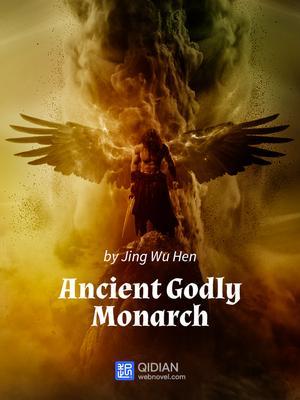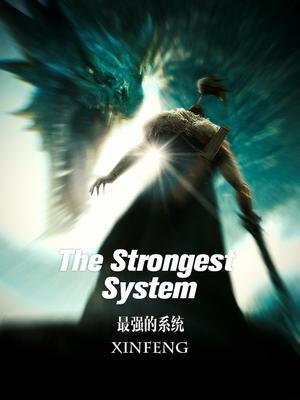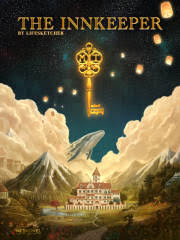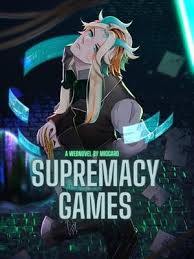The Story in 3 Sentences
Fang Qi’s monotonous life in Jiuhua City transforms when he inherits his father’s struggling shop and awakens the “Super Internet Café System,” pushing him to establish the Origins Internet Club in a world dominated by warriors and cultivators who have never experienced modern technology .
Through his café, he introduces virtual reality games, movies, and modern snacks like Sprite and Haagen-Dazs ice cream, captivating cultivators and nobles alike while facing constant threats from those who view his innovations as sorcery or challenges to traditional cultivation methods .
His journey evolves from a simple shop owner to a cultural revolutionary, forcing factions and empires to adapt to his unique blend of technology and entertainment, ultimately reshaping the world’s understanding of power and leisure .
Why It Stands Out
1. Revolutionary Concept in a Traditional Setting
The novel’s genius lies in its absurd yet brilliant premise of merging modern internet café culture with a cultivation world, creating a hilarious and refreshing contrast that constantly surprises readers with its creativity . Instead of typical combat-focused progression, the narrative thrives on cultural clash, as cultivators experience everything from CS:GO matches to emotional breakdowns over story-driven games like The Legend of Sword and Fairy, making it a standout in the genre .
2. Nostalgic Celebration of Gaming Culture
Beyond its comedy, the story serves as a heartfelt tribute to classic video games and pop culture, meticulously incorporating titles like Diablo 2, Grand Theft Auto V, and Harry Potter into the narrative . These references are not mere name-drops but integral to the plot, allowing characters to learn magic from games or craft weapons inspired by Devil May Cry, creating a deep sense of nostalgia and engagement for readers familiar with these franchises .
3. Subversion of Cultivation Tropes
The novel cleverly inverts traditional xianxia elements by prioritizing gaming skills over cultivation breakthroughs, with characters often abandoning precious training opportunities for a chance to play at Fang Qi’s café . This shift highlights themes of passion versus duty, as powerful cultivators find themselves addicted to virtual experiences, leading to humorous and thought-provoking scenarios that challenge the typical seriousness of the genre .
Characters That Leave a Mark
There’s Jiang Xiaoyue – Fang Qi’s employee whom he treats like a younger sister, showcasing his softer side through his protective and pampering nature, even holding events like Children’s Day in her honor and sharing treasures such as a 3,000-year-old peach to make her happy .
You’ll meet Su Tianji, a cultivator from the Liuyun Daoist Palace whose addiction to the café’s offerings leads her to reject prestigious cultivation realm conferences, prioritizing gaming and streaming over traditional advancement in a bold defiance of expectations .
And Lan Mo? He’s the frustrated faction leader who struggles to understand his disciples’ obsession with the café, representing the old guard’s confusion and eventual reluctant acceptance of the new world Fang Qi has created .
The Flaws Fans Debate
The novel’s repetitive structure receives significant criticism, with many readers noting that the cycle of introducing new games, facing threats, and resolving them through gaming prowess becomes predictable over its 944 chapters, leading to a sense of stagnation in the middle sections .
Some fans feel that the underutilization of certain plot elements, such as the potential for deeper exploration of the system’s origins or Fang Qi’s personal growth outside the café, leaves unanswered questions and missed opportunities for more compelling storytelling .
The heavy reliance on borrowed intellectual properties, while initially charming, can sometimes feel like a crutch, with the author assuming readers’ prior knowledge of games and movies rather than providing sufficient description, which may alienate those unfamiliar with the references .
Must-Experience Arcs
Ch. 1-50: The Grand Opening – This arc establishes the café’s inception and the initial shock of cultivators encountering modern technology, featuring iconic moments like their reactions to Sprite and early games such as Resident Evil, setting the tone for the entire series .
Ch. 191-200: The Cultivation Realm Conference – A standout section where major factions like the Wuwei Daoist Alliance debate attending a prestigious conference, only to prioritize staying at the café, highlighting the shift in values and the café’s growing influence .
Ch. 500-600: The Inter-Realm Tournament – This arc showcases large-scale gaming competitions that unite various factions through events like CS:GO matches and Diablo races, emphasizing how the café has become a cultural hub surpassing traditional cultivation gatherings .
Killer Quotes
“I wish… the internet café expands further, so more people can play our games. I wish everyone is as happy as today, I wish that everyone walking out of the internet café will be dragons and god-like figures.”
“Damn, Blizzard completes my life!”
“What is this sorcery?”
Cultural Impact
The novel has inspired a dedicated online following, with fans creating memes and discussions around cultivators’ reactions to modern games, such as the iconic line “What is this sorcery?” becoming a popular phrase for expressing amazement in related communities .
It has sparked creative works like the Spacebattles forum thread “Running a Video Game Cafe in a Fantasy World, and Also I’m God,” where users explore similar concepts, demonstrating its influence on grassroots storytelling and fan engagement .
Despite mixed critical reception, the novel maintains a strong rating of 4.6/5 on Webnovel with over 19.3M views, reflecting its ability to resonate with readers seeking lighthearted, nostalgia-driven entertainment .
Final Verdict
Start Here If You Want:
A lighthearted, comedy-focused story that doesn’t take itself too seriously, offering a fresh break from traditional cultivation novels with its unique premise and celebratory tone .
A nostalgic trip through gaming history, featuring detailed references to classic titles from Diablo to Grand Theft Auto, and enjoy seeing how these elements are integrated into a fantasy world .
A protagonist who avoids typical violent conflicts through wit and innovation, using entertainment to overcome challenges and unite people across cultural divides .
Study If You Love:
Exploring how pop culture and technology can be used as tools for soft power, influencing society and challenging traditional structures in ways that combat cannot .
Analyzing the balance between repetition and innovation in long-form storytelling, and how authors maintain engagement through familiar patterns while introducing new elements .
Examining the ethical and narrative implications of using existing intellectual properties in original works, and how these references can enhance or detract from world-building .
Avoid If You Prefer:
Stories with tight, plot-driven narratives that avoid episodic structures, as this novel often prioritizes individual moments and reactions over overarching storylines .
Deep character development and emotional complexity, as the focus here is on humor and nostalgia, with characters often serving as vehicles for jokes or cultural commentary .
Original worlds without borrowed elements, as the heavy reliance on existing games and movies means much of the joy comes from recognizing references rather than discovering entirely new creations .





